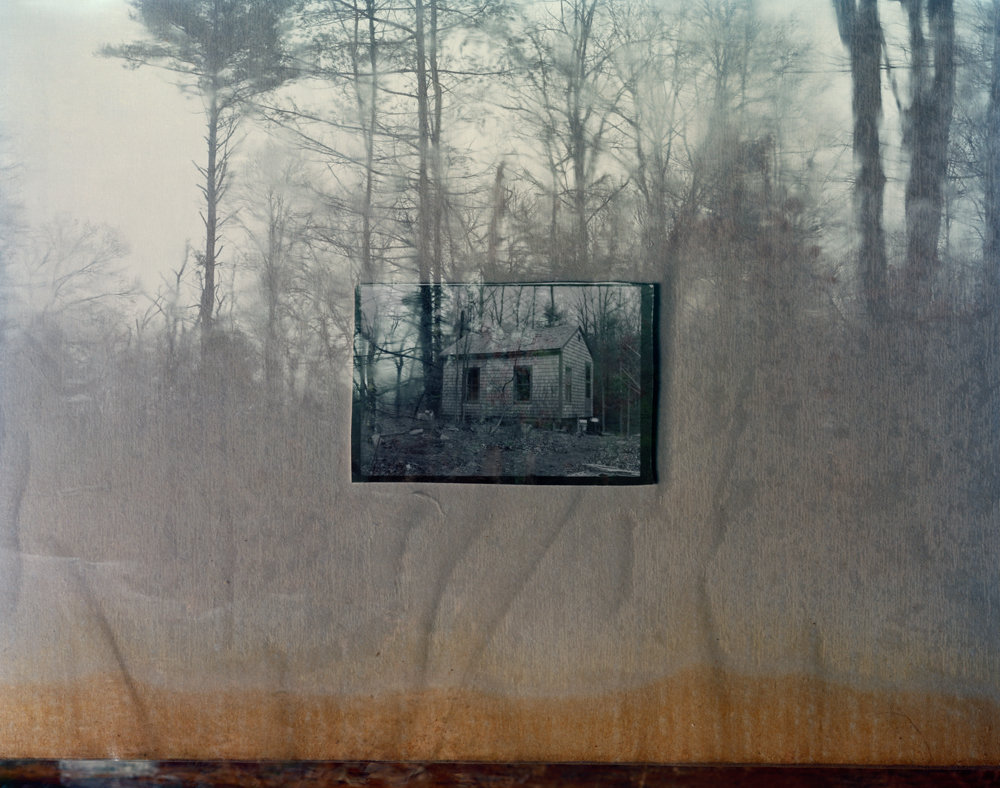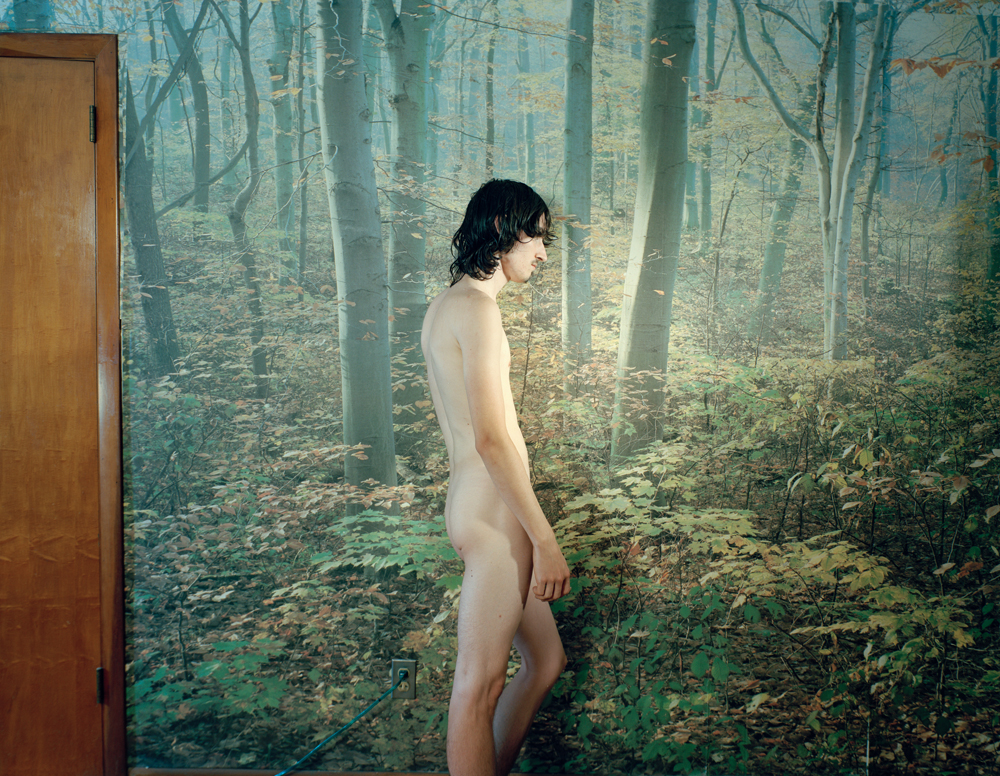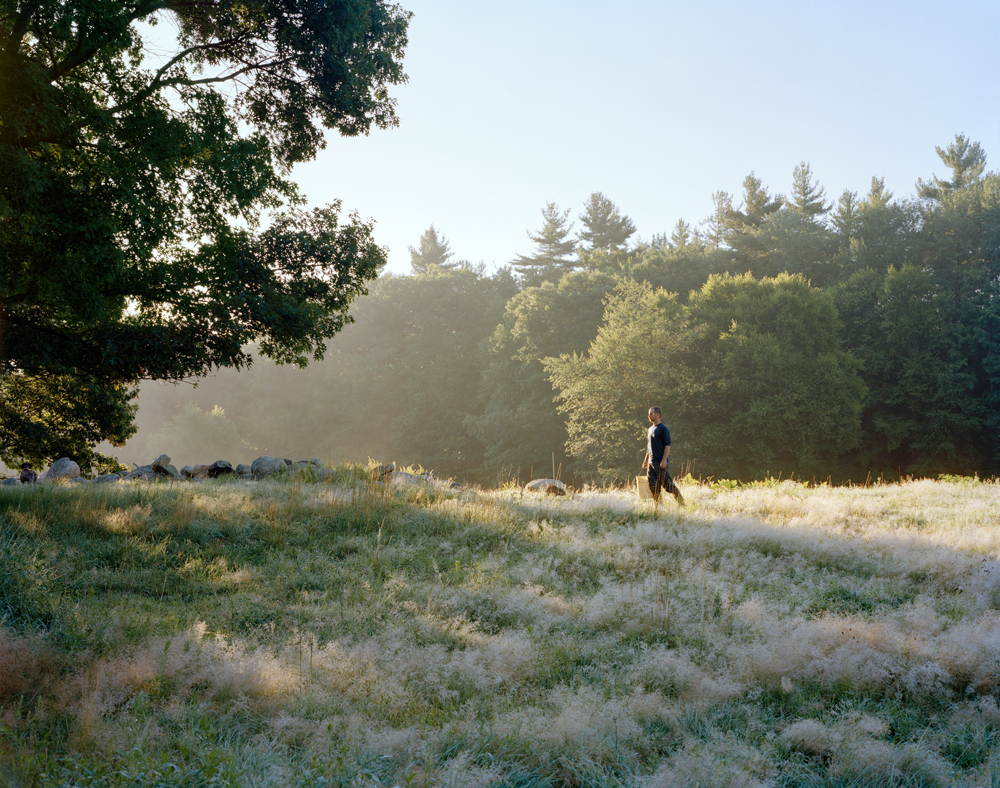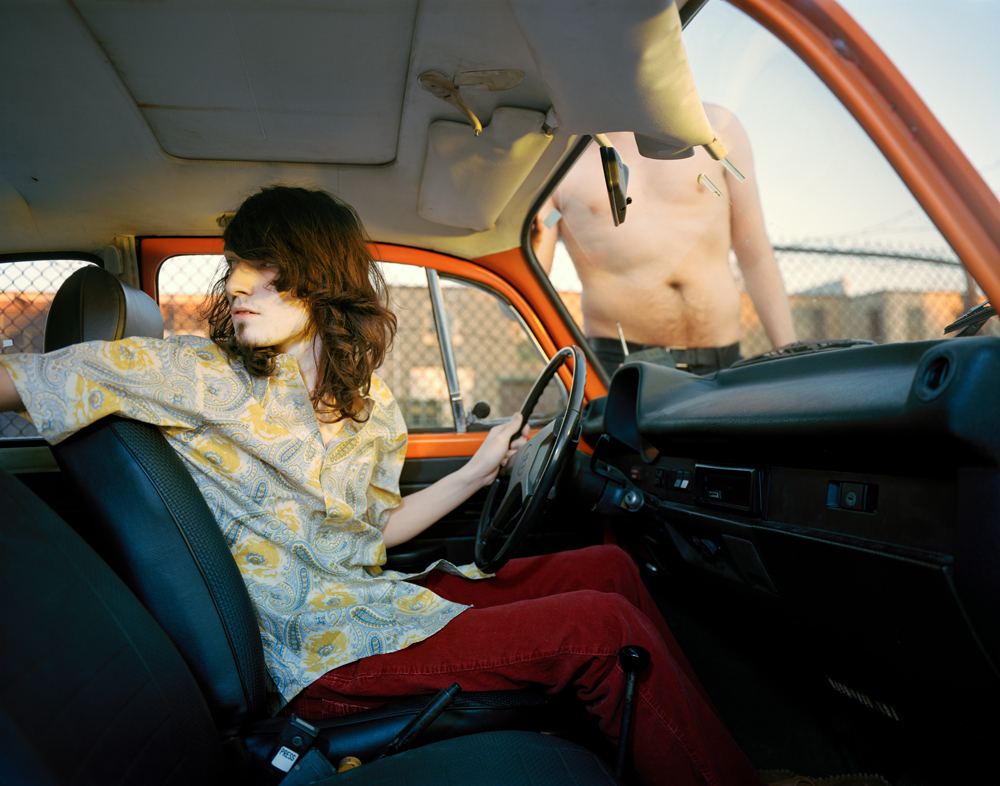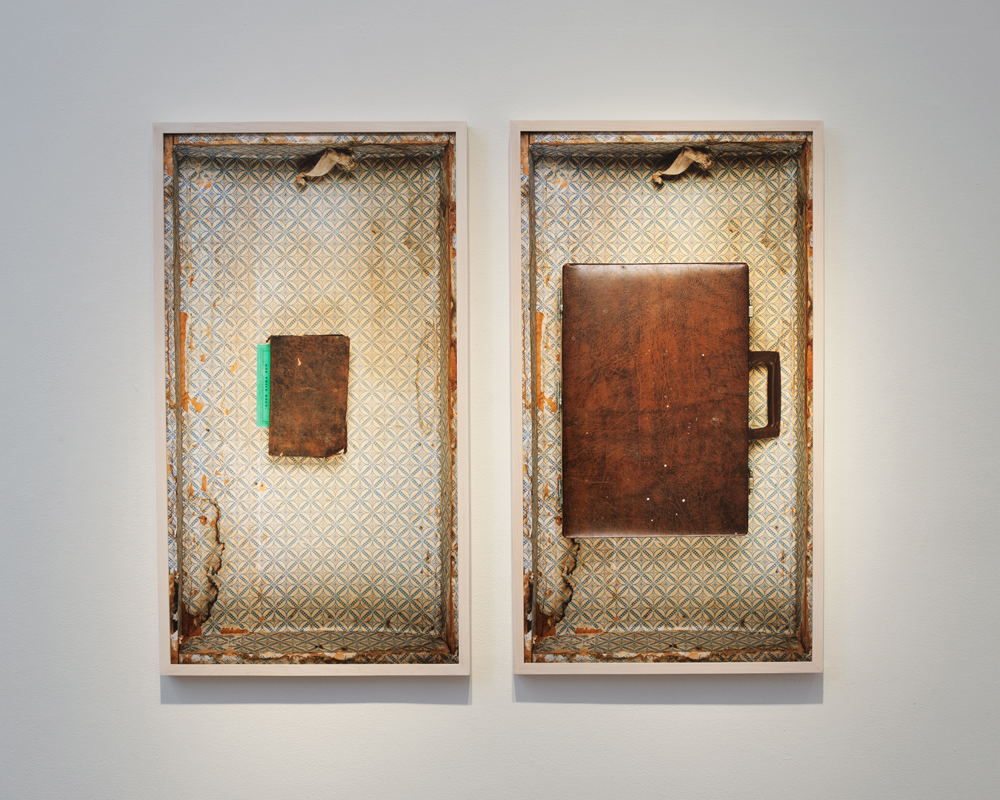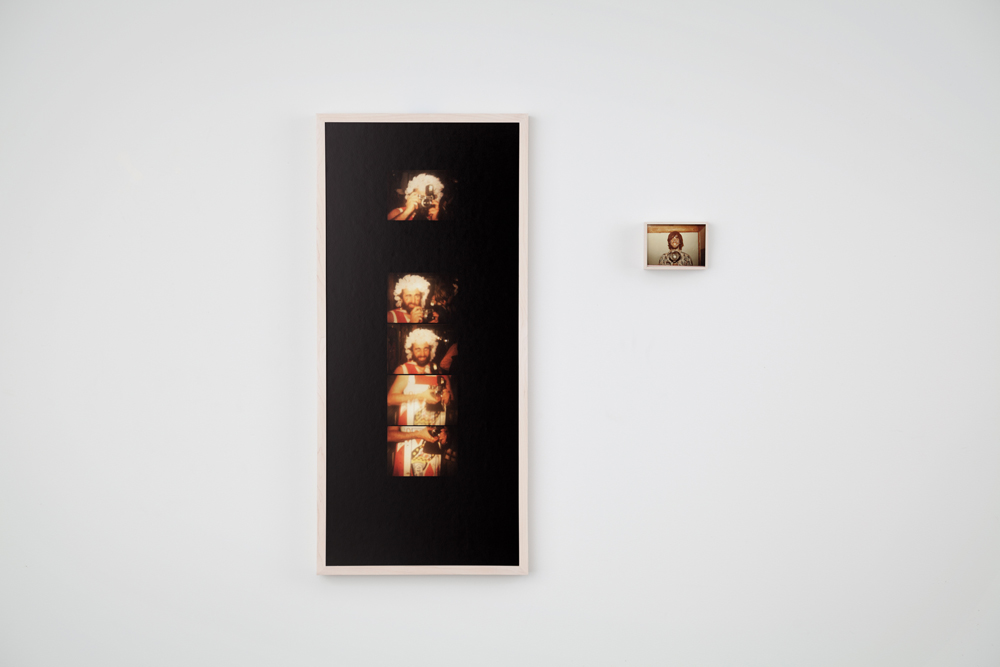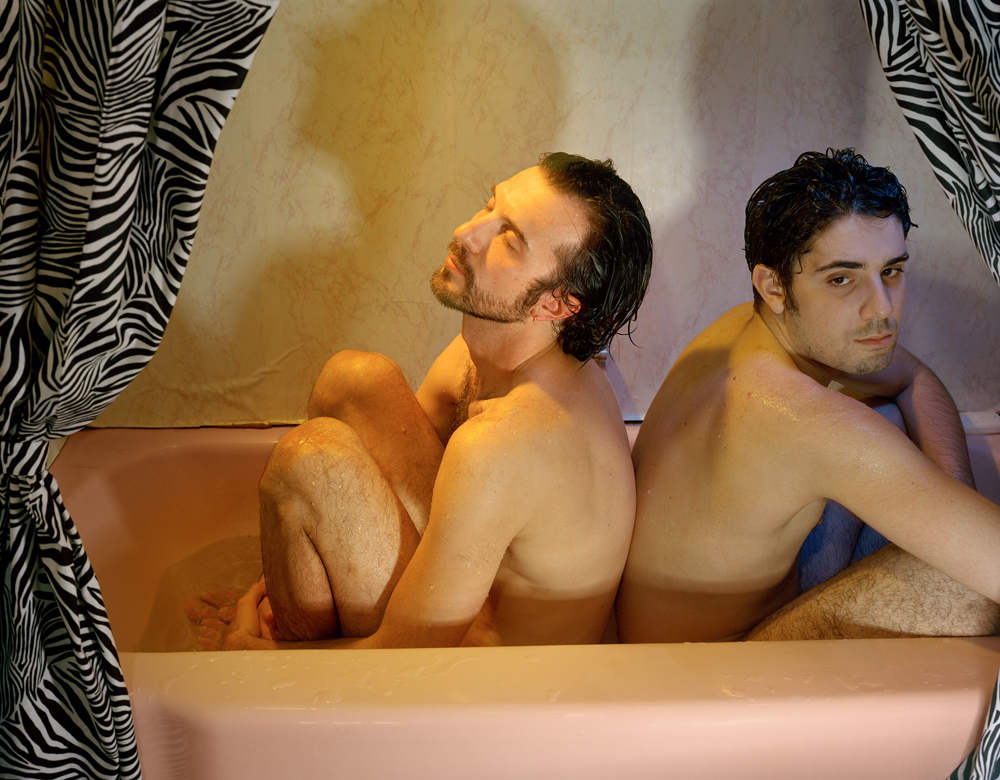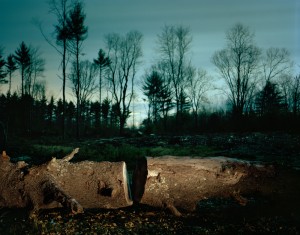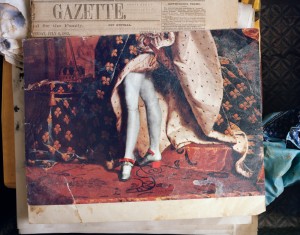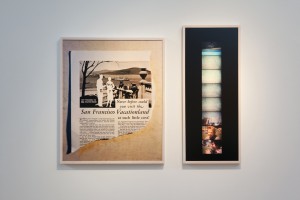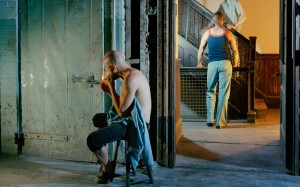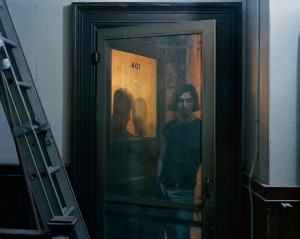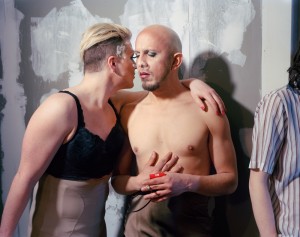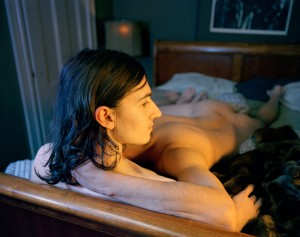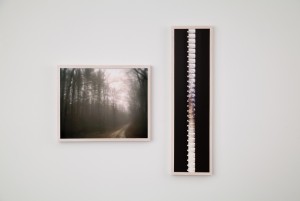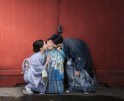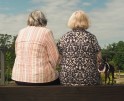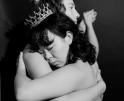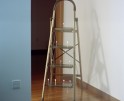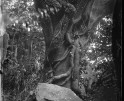Forest Kelley: Michael
“Photographs don’t cure amnesia, they attempt to fill in the gaps. It is the process of reenactment, an action of tracing history, that is most vicarious: wearing a sequined dress at the Ruby Red Ball, listening to opera with Greg, developing film in a lab at Castro and 18th, feeling where testicles are situated under a corset, receiving my uncle’s postcard in the mail, dated 1978, that said:
See you in the future,
Love Michael Kelley”
I had the great pleasure of meeting photographer Forest Kelley at the FotoFest Meeting Place reviews. He bought a fascinating and poignant narrative project inspired by his uncle, Michael. Michael was gay and an artist who lived during the eras of the free-love 70’s and AIDS in the 1980’s in rural Massachusetts. Forest combines photographs and film strips from his uncle’s archive with his own constructed photographs as way to tell a story that is profoundly personal, yet universal.
Forest Kelley (b. 1980) is an Assistant Professor of Photography at the University of Kentucky. He received a BA in Social Economics from The University of Massachusetts, Amherst and an MFA from the Rhode Island School of Design. His work has shown internationally at galleries including Clamp Art (NYC), 1708 Gallery (Richmond, VA), SF Camerawork (San Francisco), and the Rotterdam Photo Festival (Netherlands). Kelley was recognized with the 2020 Imagemaker Award by the Society for Photographic Education and an award for Best Music Score in 2018 from the International Documentary Association for his work on the Academy Award-nominated film Hale County This Morning, This Evening . Kelley’s work considers the friction between subjectivity and culture—how personal psychology lives within a social ecology. His work aims to develop agency where it has been eroded, whether it is in depicting the early history of AIDS in rural New England communities or inexploring the lack of social accountability within new virtual labor markets. His practice is ultimately a social one: It is predicated on cultivating relationships, collecting personal histories, and investigating lived experiences.
MICHAEL
My project Michael imagines the history of gay men living in rural western Massachusetts, USA in the era between the Stonewall Uprising in 1969 and the death of Rock Hudson by AIDS in 1985. Specifically, I trace the experiences of my uncle, an artist whose adult life was bookended by these landmark events in LGBTQ history. LGBTQ histories are often forgotten, if not actively erased, and rural communities are frequently the last to redress them. My work reclaims one of those stories, helping to frame an otherwise outcast history while working to support issues of acceptance and understanding more broadly in the present. Quieted and forgotten histories become exiled truths. This work is an attempt to resurrect one of those stories.
In this work, I reenact known events and memories, reconstruct shared histories, and speculate on experiences Michael might have had. The project incorporates and interprets ephemera—the things Michael left behind when he died—and his own 8mm filmstrips. Using Michael’s possessions and artwork allows me to materialize him, and lets him speak for himself, grounding my imagined images.Part documentary, this work seeks answers, but its preoccupation is with the unknowable, with visualizing the hopes and fears that continue to resonate within our family and community.
Instagram: @forest_kelley
Posts on Lenscratch may not be reproduced without the permission of the Lenscratch staff and the photographer.
Recommended
-
The 2026 LOVE Exhibition, Part 2February 14th, 2026
-
The 2026 LOVE Exhibition, Part 3February 14th, 2026
-
The 2026 LOVE Exhibition, Part 4February 14th, 2026
-
The 2026 Lenscratch New Beginnings Exhibition (Part II)January 31st, 2026
-
South Korea Week: Sung Nam Hun: The Rustling Whispers of the WindJanuary 16th, 2026

